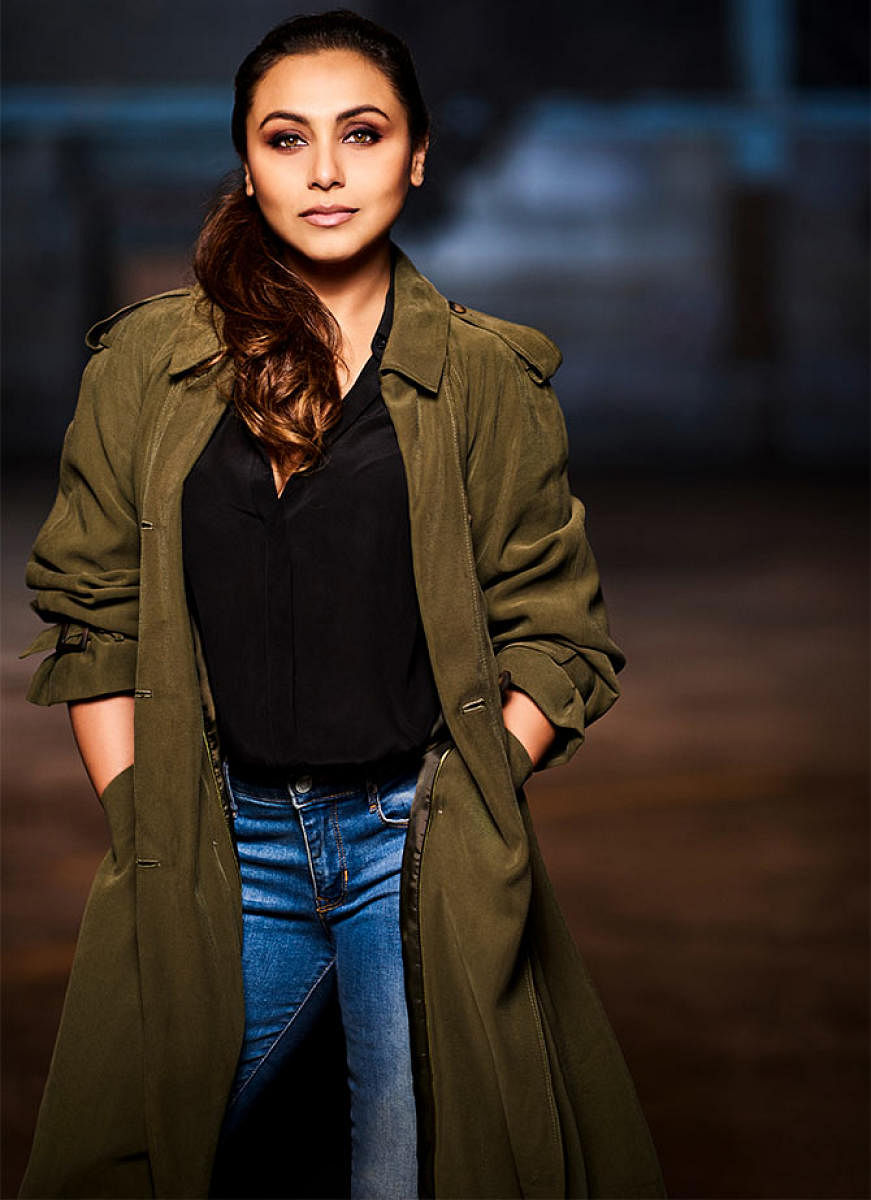
The husky-voiced Bengali beauty is back. Rani Mukerji plays the lead in ‘Mardaani 2’ which released on December 13.
If ‘Mardaani’ saw her gunning down those involved in human trafficking, the sequel is even more hard-hitting, with the subject being juvenile rape.
Rani began her career with ‘Raja Ki Aayegi Baraat’ in 1996, but was noticed only after her performance in ‘Kuch Kuch Hota Hai’ (1998). Things looked up after she was cast in ‘Saathiya’ (2002).
Twenty-three years down the line, Rani says that she is particular about the kind of scripts she takes up. In an exclusive interview with Showtime, she talks about how she strayed into the film industry.
Your father Ram Mukherji was actively involved in the entertainment industry as a director. Did that make it easy for you to get into films?
I had to take an audition to get my first film ‘Raja Ki Aayegi Baraat’. By the time I grew up, my father was not involved in films. Everybody has a view about how casting is done and how people get a job. I worked very hard to get my roles. And I have been working really hard for the last 23 years to be who I am today. I always say Aditya Chopra is married to me and not that I am married to him. He is proud of who I am. We share a different kind of dynamic and enjoy working together. I have been fortunate to have a father who encouraged me and now I have found the same support, respect and encouragement from my husband. Thanks to that, I have been able to strike the right balance between my personal and professional life.
What prompted you to make a shift in the kind of films you did after ‘Black’?
To be very honest, getting into acting was not a career choice I had consciously made. Being the obedient daughter that I am, I only followed the directions of my mother. She asked me to do a film and I did it. It was not my choice. It was a shocking decision because I didn’t believe that I was cut out for films. I was working towards becoming a lawyer. But when the opportunity came up, my mother was keen that I try it out. My mother was the driving force.
When did the change happen?
I wasn’t satisfied with what I was doing and I wasn’t going anywhere in terms of creative satisfaction. That’s when I asked my parents to take a step back and let me choose my roles. The film industry comes with its share of trials and tribulations. Whether it is success or failure, it is not fair to blame it on anybody but yourself. Now when people come to me with bound scripts, I choose only those that are story-based and have something different to offer. The change in choice of films was visible with ‘Saathiya’ and after.
What kind of characters excite you?
I have to be able to relate to the characters. If I don’t connect to them as a person, I don’t do it.
You played a teacher with Tourette’s syndrome in ‘Hichki’ after you became a mother. Did the change of role in your personal life influence your decision?
Not exactly. When the story of ‘Hichki’ came to me, I was very vulnerable because I had had my first child. I was looking at something that was worth my time, else I would spend time with my baby. With ‘Hichki’, we were trying to say something important. We were talking to people and spread awareness about a condition. There are a lot of reasons why ‘Hichki’ is special to me. I wanted to work on a character that was strong and it had to give me a good enough reason to stay away from my daughter for so many hours. ‘Hichki’ ticked all those boxes.
Did working in ‘Mardaani’ change your perspective as an actor?
When the Nirbhaya case happened, it shook all of us and we were all very angry and shocked. The media came out with graphic details about how an innocent girl was tortured and raped. As a nation, there was this anger boiling within us. ‘Mardaani’ was born out of that anger. We worked on a story around child trafficking to make girls aware of the threat around them. There was this notion that trafficking happens only at the borders but the truth is that it happens everywhere.
What does ‘Mardaani 2’ deal with?
Juvenile crime and rape is happening in our country even after Nirbhaya. Nothing has changed. Today, the threat that a woman faces is not just in the way a person looks at her. We need to be aware at all times and bring about the bravery and courage of all police officers who deal with such crimes. My character pays tribute to all the brave women police officers who put themselves out in the toughest of situations to protect the weak.
Did you have to put in extra effort for ‘Mardaani 2’?
It was easy for me to get into the avatar of a
tough cop because since childhood, I have been quite fierce. So I didn’t need to prepare for that part. I remember as a college-goer and in my school days, I have slapped people and stood up for myself. Being the character that I am in the film empowers me to do what I have always wanted to.